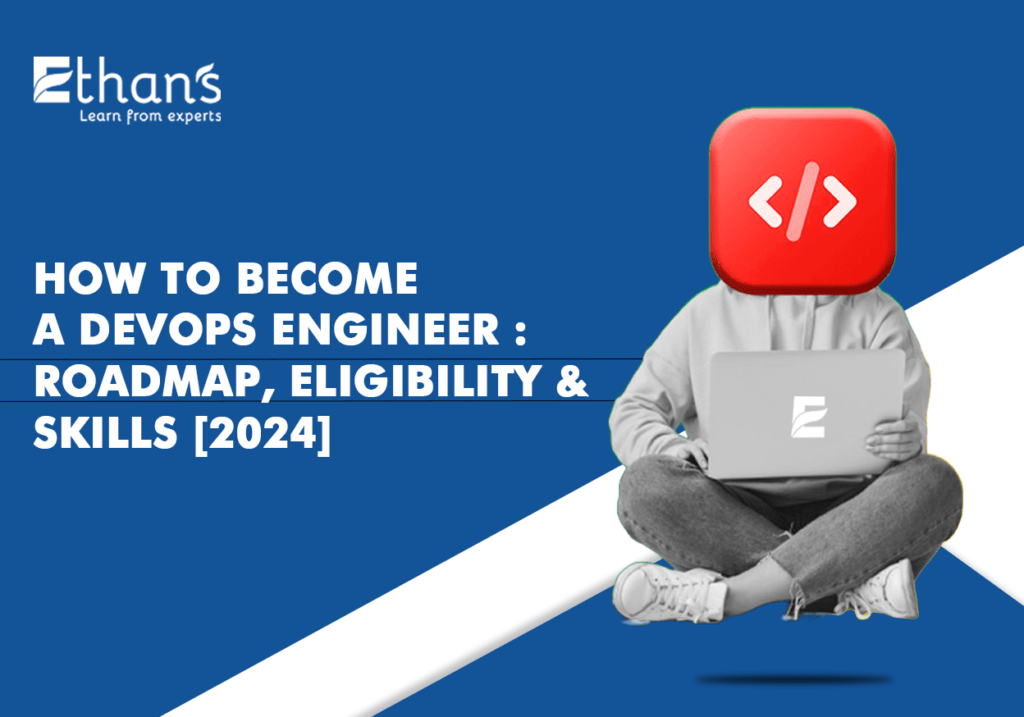Becoming a DevOps engineer is a rewarding journey that involves mastering a combination of technical and soft skills. In this guide, we’ll walk through a comprehensive roadmap, outlining the essential skills, educational background, and practical experiences needed to excel in the dynamic field of DevOps.
Introduction
Definition of DevOps
DevOps is a set of practices that aim to automate and improve the collaboration between software development and IT operations. It focuses on shortening the development lifecycle, delivering high-quality software, and enhancing collaboration across teams.
Importance of DevOps Engineers
In today’s fast-paced technological landscape, DevOps engineers play a crucial role in ensuring the seamless integration of development and operations processes. Their expertise is essential for organizations striving for efficient and reliable software delivery.
Roadmap to Becoming a DevOps Engineer
Understanding the Basics
1. What is DevOps?
Before embarking on the journey to become a DevOps engineer, it’s crucial to understand the fundamental principles of DevOps. This includes grasping concepts such as continuous integration, continuous deployment, and infrastructure as code.
2. Key Principles
Explore the key principles that drive DevOps practices, including collaboration, automation, and a focus on delivering value to end-users.
Essential Skills
1. Automation
Mastering automation tools is at the core of DevOps. Acquire skills in using tools like Ansible, Puppet, or Chef to automate manual processes and streamline workflows.
2. Collaboration
DevOps is all about collaboration. Develop strong communication skills and learn to work effectively in cross-functional teams.
3. Scripting
Proficiency in scripting languages like Python, Shell, or Ruby is essential for writing automation scripts and managing infrastructure as code.
4. Continuous Integration and Deployment
Understand the principles of continuous integration and deployment, and familiarize yourself with tools like Jenkins, Travis CI, or GitLab CI.
Read Full Blog – Best DevOps Tools to Learn and Master In 2023
Educational Background
1. Recommended Degrees
While not mandatory, degrees in computer science, information technology, or related fields provide a solid foundation for a career in DevOps.
2. Certifications
Consider obtaining certifications such as AWS Certified DevOps Engineer, Docker Certified Associate, or Kubernetes Administrator to validate your skills.
Gaining Practical Experience
Hands-On Projects
1. Personal Projects
Undertake personal projects to apply theoretical knowledge in real-world scenarios. This could include setting up a CI/CD pipeline or automating infrastructure provisioning.
2. Open Source Contributions
Contribute to open source projects to collaborate with experienced developers and gain exposure to diverse technologies.
Networking in the DevOps Community
Online Forums and Communities
Join online forums and communities such as Stack Overflow, Reddit, or DevOps forums to connect with fellow professionals, seek advice, and stay updated on industry trends.
Attending Conferences and Meetups
Participate in DevOps conferences and local meetups to network with industry experts, learn about emerging technologies, and broaden your knowledge base.
Building a Strong Professional Portfolio
Showcasing Projects
Create a professional portfolio showcasing your projects, contributions to open source, and any innovative solutions you’ve implemented.
Highlighting Achievements
Highlight specific achievements, such as reducing deployment time or improving system reliability, to demonstrate the impact of your work.
Preparing for Interviews
Common Interview Questions
Prepare for common DevOps interview questions related to automation, troubleshooting, and collaboration. Showcase your problem-solving skills through practical examples.
Demonstrating Problem-Solving Skills
During interviews, illustrate your problem-solving skills by discussing challenges you’ve overcome and the impact of your solutions on project outcomes.
Advancing Your Career
Specializing in a Niche
Consider specializing in a niche area within DevOps, such as cloud automation, security, or containerization, to enhance your expertise.
Pursuing Advanced Certifications
Advance your career by pursuing advanced certifications that align with your chosen niche. This demonstrates a commitment to continuous learning and mastery of specialized skills.
Conclusion
Becoming a DevOps engineer requires a combination of technical skills, practical experience, and a commitment to continuous learning. By following this roadmap, you can navigate the complexities of the DevOps landscape and position yourself for a successful and fulfilling career.
Embarking on the DevOps engineer journey demands commitment to continuous learning and practical experience. Elevate your career with Ethan’s Tech, a leading platform for cutting-edge DevOps training.
Unlock the power of data in your DevOps toolkit – Enroll in our Data Science course today and take your skills to the next level
FAQs
1. Is a formal degree necessary to become a DevOps engineer?
No, a formal degree is not mandatory, but it can provide a strong foundation. Practical experience, skills, and certifications are equally important.
2. What are the key programming languages for a DevOps engineer?
Python, Shell scripting, and Ruby are commonly used languages. However, the choice may depend on specific project requirements.
3. How important is networking in the DevOps community?
Networking is crucial. Joining forums, attending meetups, and participating in conferences can open up opportunities and foster learning.
4. What certifications are highly regarded in the DevOps field?
Certifications such as AWS Certified DevOps Engineer, Docker Certified Associate, and Kubernetes Administrator are highly regarded.
5. How can I stand out during a DevOps job interview?
Showcase your problem-solving skills, highlight practical experiences, and demonstrate your ability to collaborate in cross-functional teams.
Tags
DevOps Classes in Pune, DevOps Course with Placement in Pune, DevOps Training in Pune Kharadi, DevOps Training in Baner, DevOps Training in Hinjewadi, DevOps Training in Noida

